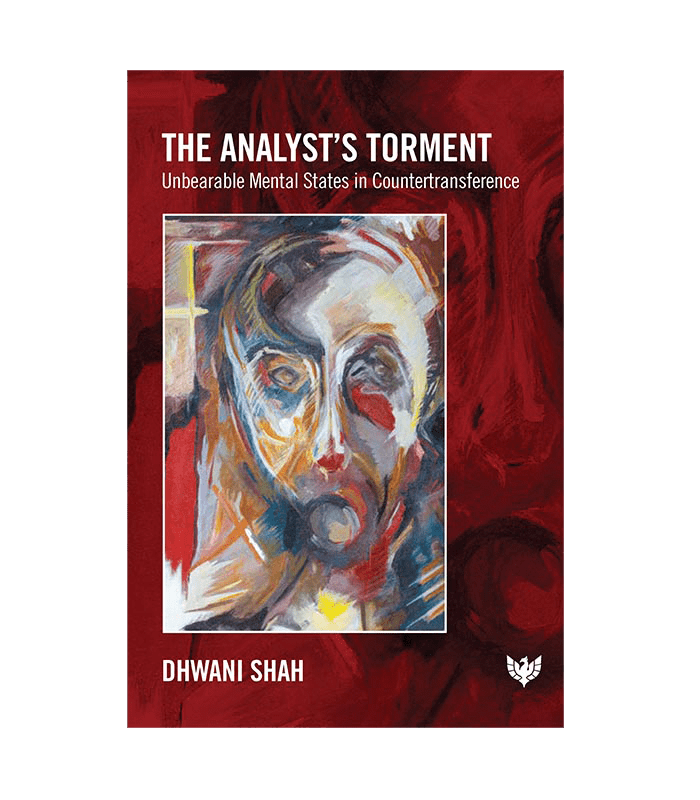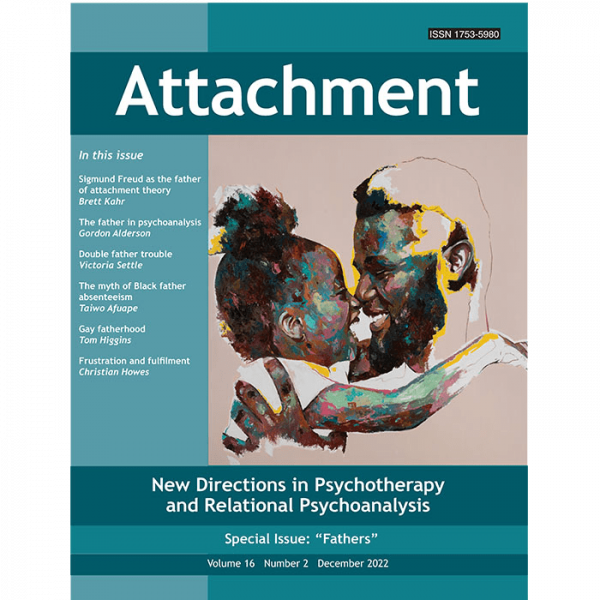Dhwani Shah moves the focus from using psychoanalytic theory and technique to explore the patient’s mind from a safe distance. Instead, he concentrates on the analyst’s feelings, subjective experiences, and histories, and how these impact on the intersubjective space between analyst and patient. His eight chapters each highlight a particular emotional state or problematic feeling and explore their impact on the analytic work, which requires emotional honesty and open reflection. This authenticity is vital for every unique encounter within the shared space of both the analyst and patient. The analyst must strive to be responsive, yet disciplined, and this requires the work of mentalization. An ability to “go there” with patients offers the best chance at helping them. The analyst’s uncomfortable and disowned emotional states of mind are inevitably entangled with the therapeutic process and this has the potential to derail or facilitate progress.
The chapters deal with uncomfortable themes for the analyst to face: arrogance, racism, dread and its close relation erotic dread, dissociation, shame, hopelessness, and jealousy. These bring up common ways in which analysts stop listening and struggle in the face of uncertainty and intensity; the difficulties in facing unbearable experiences with patients, such as suicidality; disruptions to being with patients in an affective and embodied way; and thwarted fantasies of being the “hero”. With all of these difficult topics, Shah describes painful and tormenting experiences in a clinically meaningful way that allow growth.
In this exceptional debut work, Shah demonstrates that what analysts feel, in their affects, bodies, and reveries with patients, is vital in helping them to understand and metabolise the patients’ emotional experiences. This is a must-read for all practising clinicians.





 Dhwani Shah, MD, is a psychiatrist and psychoanalyst currently practising in Princeton, NJ. He is a clinical associate faculty member in the Department of Psychiatry at the University of Pennsylvania School of Medicine and a faculty member at the Psychoanalytic Center of Philadelphia. He completed his residency in psychiatry at the University of Pennsylvania School of Medicine where he was chief resident and completed a fellowship in treatment resistant mood disorders at University of Pennsylvania School of Medicine. He is the recipient of several awards, including the University of Pennsylvania PENN Pearls Teaching Award for excellence in clinical medical education, the University of Pennsylvania residency education Psychodynamic Psychotherapy Award, and the Laughlin Merit Award for professional achievement. He has authored articles on topics ranging between neuroscience, mood disorders, and psychoanalysis.
Dhwani Shah, MD, is a psychiatrist and psychoanalyst currently practising in Princeton, NJ. He is a clinical associate faculty member in the Department of Psychiatry at the University of Pennsylvania School of Medicine and a faculty member at the Psychoanalytic Center of Philadelphia. He completed his residency in psychiatry at the University of Pennsylvania School of Medicine where he was chief resident and completed a fellowship in treatment resistant mood disorders at University of Pennsylvania School of Medicine. He is the recipient of several awards, including the University of Pennsylvania PENN Pearls Teaching Award for excellence in clinical medical education, the University of Pennsylvania residency education Psychodynamic Psychotherapy Award, and the Laughlin Merit Award for professional achievement. He has authored articles on topics ranging between neuroscience, mood disorders, and psychoanalysis.
Nancy McWilliams, PhD, ABPP, Rutgers Graduate School of Applied & Professional Psychology –
‘Anyone wanting to know how it feels to be a psychoanalytic therapist should read this book. Dhwani Shah has given us an uncommonly honest, compelling account of the emotional consequences of genuine engagement with patients’ suffering. Although his writing reflects extensive scholarship and clinical experience, it is his humanity, humility, and originality that take these chapters beyond ordinary reflections on countertransference. The Analyst’s Torment achieves something rare for a psychoanalytic book: it is a real page-turner. I recommend it enthusiastically to clinicians, students, patients, and scholars interested in the haunted inner life of the therapist.’
Elliot Jurist, Ph.D., Professor, Psychology and Philosophy, CCNY, CUNY –
‘Dhwani Shah’s The Analyst’s Torment is honest, probing, and does not hesitate in the pursuit of investigating the integrity of psychoanalytic work. The book draws from a range of theorists but does not stay aloft in abstract, illustrating the ideas with detailed, incisive clinical examples. Shah addresses many of the most compelling topics that influence contemporary psychoanalytic work. However, this is a book that all clinicians can learn and grow from: humility is needed in order to be genuinely affected by and to affect our patients.’
Dionne R. Powell, MD, Training and Supervising Analyst, the Psychoanalytic Association of New York and Columbia University Center for Psychoanalytic Training and Research –
‘In The Analyst’s Torment, Dhwani Shah speaks to what remains silenced within the analyst’s mind: their arrogance, racism, dread of mental anguish or unrelenting erotic longing, envy, and jealousy. Affects that can leave the analyst ashamed, dissociated, and, if prolonged, in a state of existential hopelessness. Shah explores all this and more with openness and authenticity, allowing the clinician to recognize similar affects within themselves; remaining in the sunken and unsavoury places that must be embodied for therapeutic understanding and transformation. During this time of pandemic, sociopolitical and racial upheaval, Shah’s compassion invites the reader to dwell within these complex affect states for their inherent value, resulting in our feeling less alone and incapacitated by these powerful emotions. Shah’s book should be a constant companion for any contemporary psychotherapist or psychoanalyst and should serve as a source of relief in these tormenting times.’
Professor Brett Kahr, Senior Fellow, Tavistock Institute of Medical Psychology, London and Visiting Professor of Psychoanalysis and Mental Health, Regent’s University London –
‘Sitting all day in a chair, listening to innumerable tales of horror, certainly cannot be described as easy or relaxing. In this immensely honest, highly refreshing, and grippingly written book, Dr Dhwani Shah has drawn upon his rich clinical experience and his unique insights, and has provided us with a very illuminating map of the confidential complexities of the consulting room. Every mental health clinician should read this excellent work, which will prompt us all to review our own practices with much greater vigilance.’
5-Star Amazon review, November 2022 –
A joy to read
Beyond the obvious extensive clinical expertise and knowledge that Dr Shah shares with his readers with ease, the true joy of his work comes from hearing his authentic and genuine voice fill the pages. This is a must read for all clinicians in the field!
5-Star Amazon review, October 2022 –
Well written!
This is a very well written and honest book that provokes true insights into patients’ suffering at a meangful level. Kudos to Dr. Shah!
Jeanine Connor, psychodynamic psychotherapist, ‘Therapy Today’ April 2023 –
‘While this book covers many complex psychoanalytic concepts, it does so in a way that is accessible and peppered with personal insight and humour. […] Shah has an easy, conversational style in presenting the clinical work, and is incredibly honest in sharing his own personal thoughts, feelings and associations to it, including his perceived missteps.’
Grace Yan, International Journal of Psychoanalysis, 2023, (104)(6):1147-1150 –
‘Shah balances both classical and contemporary views of countertransference without losing focus on his central theme: staying open to and curious about countertransference rather than evading it or grasping for ready-made explanations. While Shah cites many theoretical concepts from writers of different times and of different orientations, he does not “present” a theory on how to deal with the “unbearable mental state”. I feel that the strength and the focus of the book is to demonstrate how to stay present and non-defensive with countertransferential reactions. This is especially useful for beginning therapists in learning how to familiarize themselves with various difficult mental states and making use of them in clinical work. Shah’s openness and sincerity make this book an important contribution to the current discussion of countertransference.’
Lettica Banton, TR Together, February 2024 –
‘The book really comes to life when Shah offers personal reflexivity on the therapeutic process through clinical vignettes. […] Written in a clear, digestible style, I read the book from start to finish, underlining points that really resonated. I can see myself regularly returning to specific chapters when an ‘unbearable state’ emerges in my client work, for both theoretical and skills-based ideas on how to navigate a complex intersubjective process. Overall, I found the book to be a helpful reminder that often as ‘wounded-healers’ working in the profession, how we respond to clients can be deeply intwined in our personal histories. Therefore, ongoing and honest self-reflection alongside one’s own analysis can be as important for making sense of the unfolding intersubjective process as analysing the client’s inner world.’
Grace Yan, Independent Scholar, International Journal of Psychoanalysis –
‘Throughout the book, Shah seems to be at ease discussing his clinical experiences and personal reflection. […] This book addresses the subject of countertransference as an instrumental phenomenon in the practice of psychoanalysis and psychoanalytic psychotherapy. Shah balances both classical and contemporary views of countertransference without losing focus on his central theme: staying open to and curious about countertransference rather than evading it or grasping for ready-made explanations. […] I feel that the strength and the focus of the book is to demonstrate how to stay present and non-defensive with countertransferential reactions. This is especially useful for beginning therapists in learning how to familiarize themselves with various difficult mental states and making use of them in clinical work. Shah’s openness and sincerity make this book an important contribution to the current discussion of countertransference.’